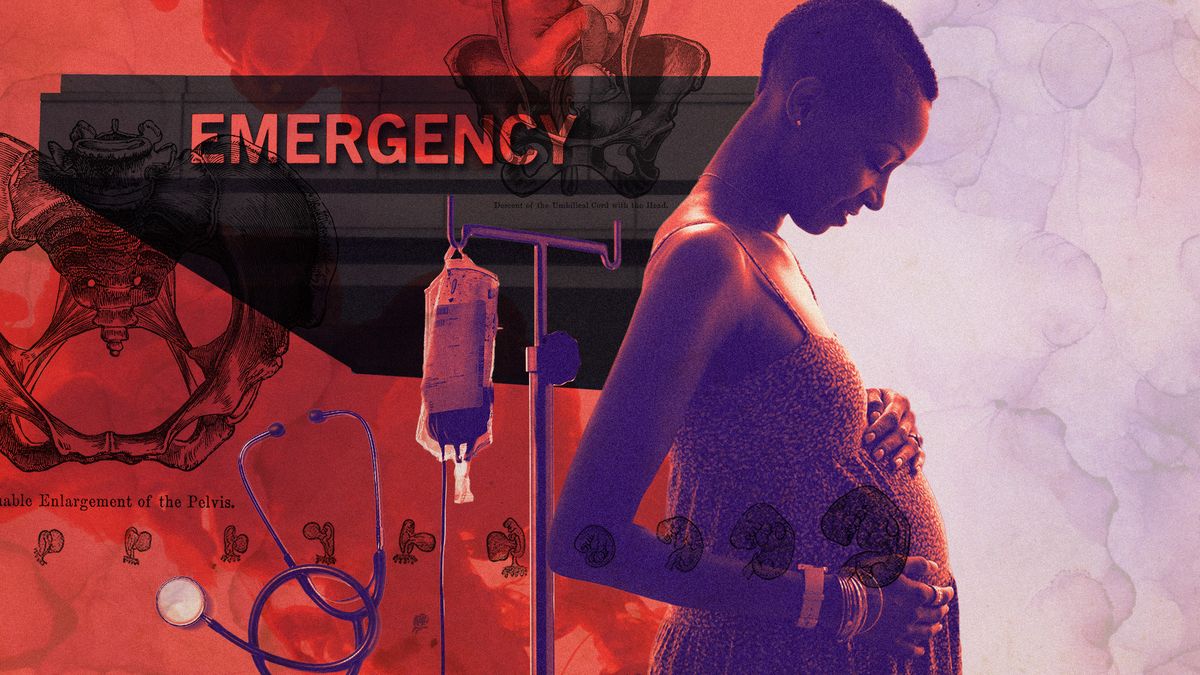In the grand tapestry of civilization, the threads of humanity interweave in myriad hues, each color representing a unique cultural heritage and experience. Yet, amidst this vibrant mosaic lies a distressing pattern; the disproportionately high maternal mortality rates among Black women in the United States serve as a somber reminder of systemic inequities and social injustices. Bahá’í teachings, with their profound emphasis on unity, justice, and the inherent dignity of every individual, provide a philosophical framework as well as actionable guidance for addressing this critical issue.
To comprehend the urgency of reducing Black maternal mortality, one must first acknowledge the historical and structural factors that contribute to this crisis. The convergence of socioeconomic disparities, inadequate access to healthcare, and societal bias leads to a perilous reality for many Black mothers. Thus, an effective response must not only address immediate medical needs but also dismantle the underlying barriers that perpetuate these inequities.
As Bahá’í teachings illuminate the pathway toward social transformation, they offer several core principles that can guide efforts to rectify the prevailing maternal health disparities:
- Unity of Humanity: The Bahá’í principle of unity posits that all human beings are fundamentally interconnected. Emphasizing this interconnectedness can inspire communities to cultivate a collective sense of responsibility for maternal health. Educating the public about the specific needs and challenges faced by Black mothers can foster empathy and solidarity, bridging divides and galvanizing action.
- Equity and Justice: Central to Bahá’í beliefs is the notion of justice as a divine quality. Advocating for policy reform that ensures equitable access to quality healthcare is paramount. This includes harnessing the power of local governments to implement programs that specifically target Black maternal health, such as enhanced prenatal care services, mental health support, and access to culturally competent medical staff.
- Education and Awareness: The Bahá’í emphasis on education as a mechanism for social change can be instrumental in illuminating the intricacies surrounding maternal health. Comprehensive outreach programs can empower Black women with vital knowledge regarding their health, obstetric services, and available support systems. Furthermore, educating healthcare providers about implicit biases can improve the quality of care and reduce the risk of discriminatory practices that exacerbate maternal mortality rates.
- Community Support: The Bahá’í faith underscores the importance of community and collective efforts. Establishing supportive networks for expectant Black mothers—such as peer-led support groups or mentorship programs—can provide essential emotional and logistical assistance. These networks can share resources, foster friendships, and promote a nurturing environment that uplifts the voices of mothers.
- Spiritual Health and Well-being: Bahá’í teachings emphasize the unity of physical and spiritual well-being. Integrating holistic approaches that include mental health resources, spiritual counseling, and stress management techniques can address the multifaceted challenges that Black mothers face. Acknowledging the spiritual dimension of health not only nurtures resilience but also cultivates an empowered mindset among mothers.
Implementing these principles requires a multi-faceted strategy that encompasses not only healthcare providers but also policymakers, community leaders, and families. Collaborative efforts can lead to transformative changes by creating policies that prioritize the health of Black mothers and their families. Raising awareness of the issue among all demographics fosters community involvement; advocacy teams can form coalitions across racial, social, and economic lines to ensure maternal health becomes a unified priority.
Furthermore, addressing the political landscape surrounding maternal health is paramount. Legislative advocacy can propel initiatives such as expanded Medicaid coverage for postpartum care, which is critical for addressing the health needs of newly delivered mothers. Coordination with advocacy groups focused on maternal health can amplify voices calling for systemic reform, transforming bureaucratic inertia into a dynamic movement for justice.
The intrigue of our endeavor lies not only in the potential for tangible results but also in the profound transformation that can emanate from our collective action. By leveraging the teachings of the Bahá’í faith, we craft a narrative that transcends mere statistics, inviting a deeper understanding of the lived experiences of Black mothers. Each story, each life lost, can serve as a poignant reminder of the ongoing struggle against inequity.
Finally, as we forge ahead in this pivotal mission, the metaphor of a garden may resonate deeply. Just as a garden flourishes through diverse and harmonious interactions between various plants, so too can a society thrive when it nurtures the wellbeing of all its members. The flowers of hope and resilience can bloom even in the harshest of environments, provided they are given the right nourishment and care. As stewards of this garden of humanity, we must ensure that no seed is left unwatered, no voice unheard.
In conclusion, the journey to reducing Black maternal mortality in the U.S. is an odyssey that demands unwavering commitment, compassionate action, and a steadfast adherence to the principles of justice, equity, and unity. Through the lens of Bahá’í teachings, we possess the tools necessary to effectuate meaningful change and honor the sanctity of life in all its diversity. Together, let us cultivate an inclusive and equitable landscape where every mother can thrive—unencumbered, empowered, and celebrated.
